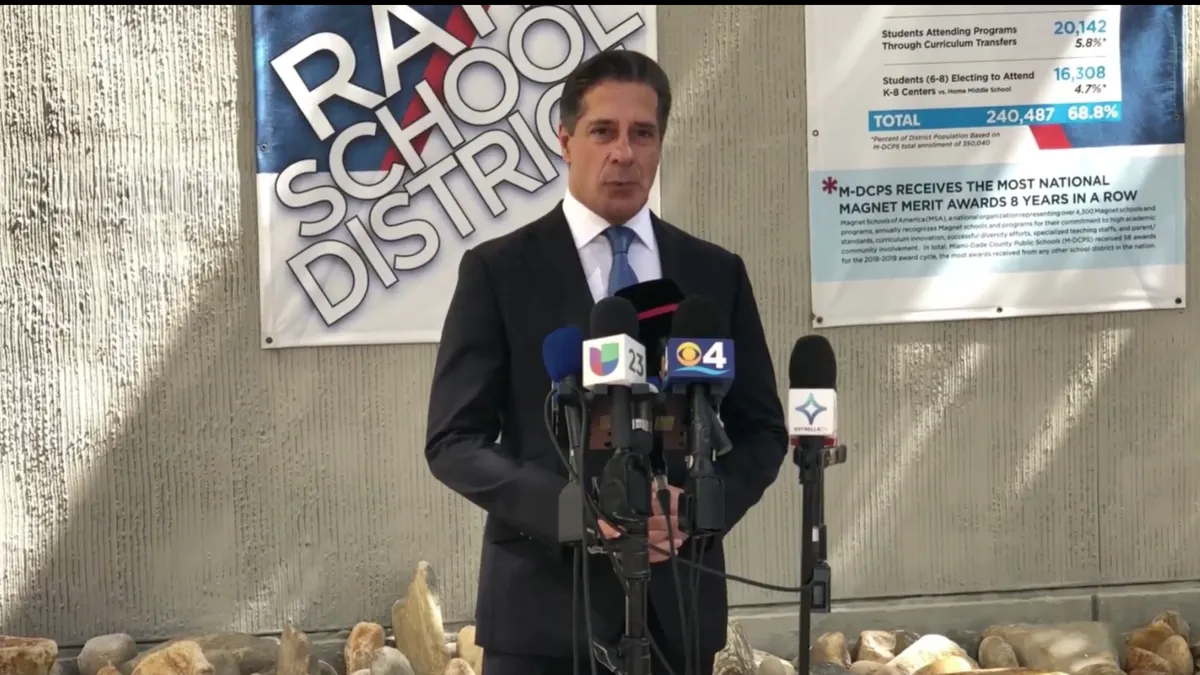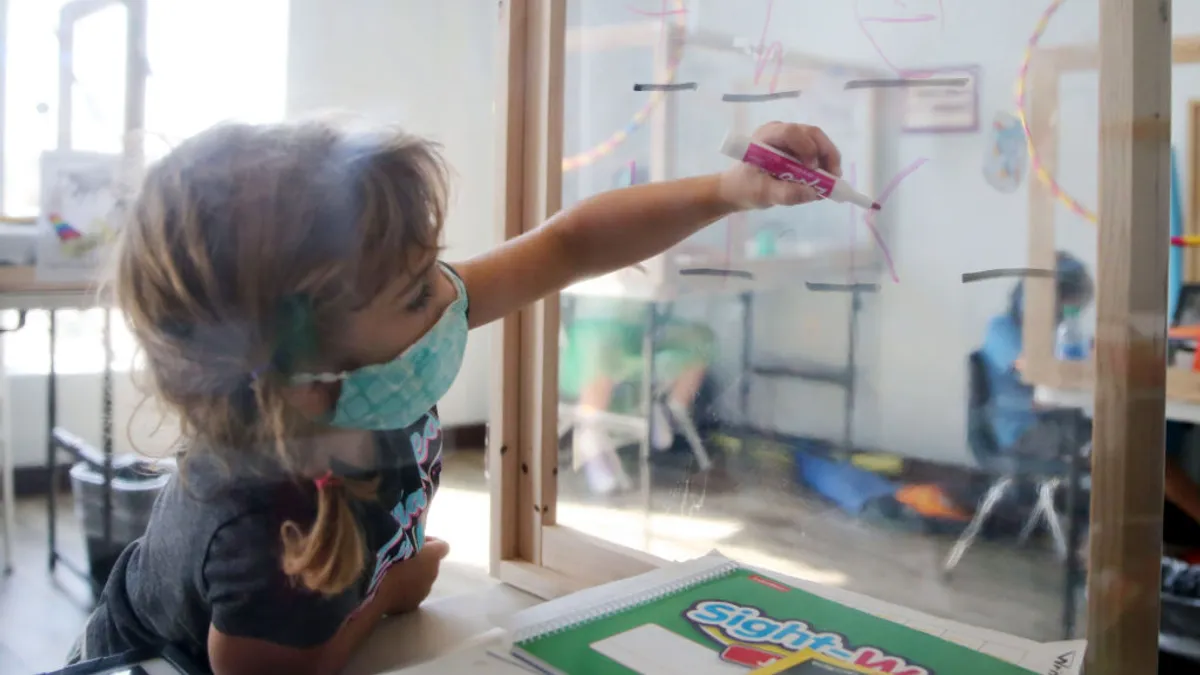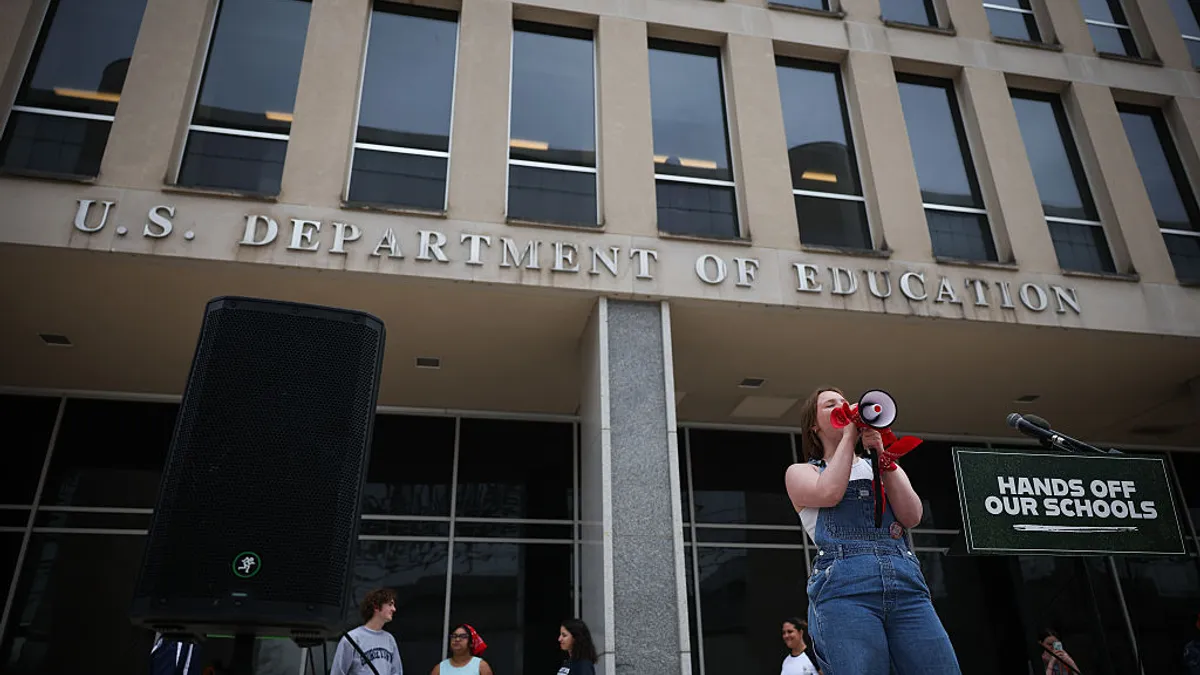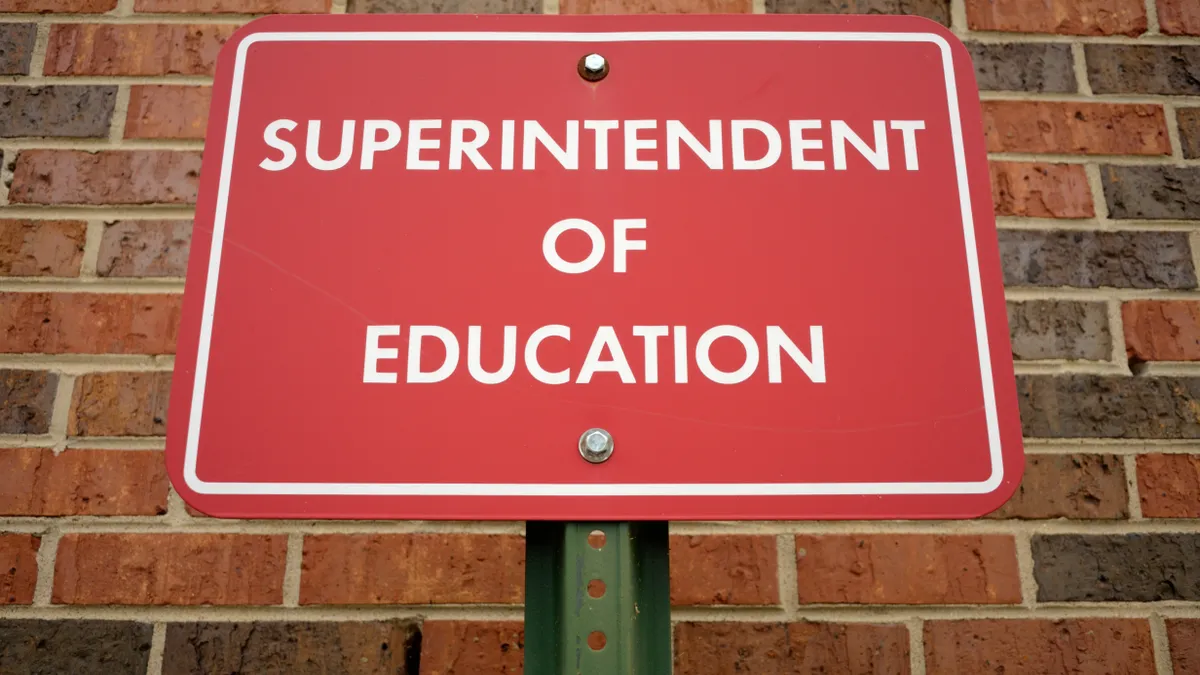Prior to the COVID-19 pandemic, the average superintendent tenure was about five to six years. But the ongoing health crisis compounded the academic, technological, economic and emotional challenges facing district leaders, with many choosing to step down or retire early as pressures mounted.
This was perhaps highlighted no better than in the nation’s three largest school systems — New York City, Los Angeles and Chicago — which together saw a trifecta of superintendent exits by the end of May 2021.
Amid a new spike in COVID cases due to the omicron variant, district leaders are continuing to adapt their strategies or step into entirely new situations altogether as they face “damned if you do, damned if you don’t” decisions around how to maintain in-person learning or return temporarily to remote environments alongside big-picture questions around recovering lost learning and more.
Based on their track records, their outlooks toward top issues facing K-12, and the challenges they face, here are five superintendents to keep an eye on in 2022.
David Banks
Freshly minted New York City Schools Chancellor David Banks has made waves since Mayor Eric Adams announced him for the position in December. At the time, Banks stated, “Any agency that has a $38 billion annual budget ... and yet we have 65% of Black and brown children who never achieve proficiency. That should be outrageous, it’s a betrayal,” the New York Post reports.
Banks, a longtime educator in the city, is known for founding the Eagle Academy for Young Men, a network of all-boys public schools that serve low-income Black and Latino students in grades 6-12. He set out to address the academic struggles and stricter discipline practices boys of color tend to face in schools, and The New York Times reports Eagle Academy schools have become known for higher graduation rates and prioritizing community and structure.
However, Banks has his work cut out for him: Student enrollment is down by 50,000 since 2019, around 100,000 students are homeless, dozens of schools are low-performing, and the system is among the nation’s most segregated. The pandemic has exacerbated these and other issues, giving Banks anything but an easy road to travel.
Sharonica Hardin-Bartley
As superintendent of the School District of University City in Missouri since 2016, Sharonica Hardin-Bartley has prioritized equity, trauma-informed practices and student voice.
District parent Lauren Wright-Jones told the St. Louis American in 2020, “Since she’s been the superintendent, that has just transformed the way students get to feel in their learning environment and the way their needs are met and addressed each day.”
Out-of-school suspensions in the district are down due to her implementation of mindfulness practices and restorative circles to address student conflicts, and her strategic plan for the district has placed a focus on working to “humanize, personalize and problematize” students’ learning experiences.
Alongside her responsibilities in University City, Hardin-Bartley also serves as board vice president for Big Brothers Big Sisters of Eastern Missouri and the University City Children’s Center, and she is on the boards for Alive and Well Communities, The Magic House and the United Way of Greater St. Louis. She was also on the Child Well-Being and Education Equity Committee of the Ferguson Commission.
Alberto Carvalho
After a 13-year stint leading Miami-Dade County Public Schools in Florida, in which access and equity were placed front and center, Superintendent Alberto Carvalho is set to take the reins of the Los Angeles Unified School District by March.
Under Carvalho’s leadership, Miami-Dade, the nation’s fourth-largest school system, remained competitive and innovative by expanding public school choice options via a strong magnet program and Carvalho’s own iPrep Academy, located in the district’s central office.
During a news conference following his announcement as LAUSD’s next superintendent, Carvalho drew parallels between the challenges facing the nation’s second-largest school system and those in Miami-Dade, particularly citing achievement gaps affecting low-income students, students with disabilities and Black and Latino students. The pandemic, he said, had resulted in unprecedented learning loss exacerbating those issues, EdSource reports.
How Carvalho’s proactive and charismatic approach to engaging the support of the local community on referendums and other initiatives, as well as his commitment to keeping public schools competitive on district-grown school choice options, translates in Los Angeles will be worth watching.
Millard House
Since taking office in June 2021, Houston Independent School District Superintendent Millard House has had to defuse tensions in relations with both state leadership in Texas and within the local community.
In his first 100 days leading the district, House faced the specter of a takeover by the Texas Education Agency, prompted in part by alleged improprieties of former school board members — though he told KHOU 11 conversations with Education Commissioner Mike Morath have been productive.
He’s also faced community pushback over mandatory masking. Additionally, the district is among those asked to provide information on hundreds of library books amid inquiries around “pornography” in school books.
But House’s tenure has also seen its share of success despite the contentious environment. The district has reportedly reengaged with around 18,000 students who were absent during pandemic learning, and House has remained focused on building community and promoting kindness.
Prior to the start of the 2021-22 school year, House, a barber during his college days, engaged with HISD students by giving them haircuts.
HISD’s new Superintendent, Millard House II, use to be a barber during his college years, so he donated his time giving haircuts to HISD students. Thank you for your service and leadership! pic.twitter.com/aY6dmIyKky
— Damon Barone (@BaroneDamon) August 23, 2021
Pedro Martinez
In taking office as CEO of Chicago Public Schools in September, Pedro Martinez, who previously led San Antonio Independent School District, inherited a district that — alongside the challenges of the pandemic — has faced an 11-day teacher strike and scandals around student sexual abuse and special education in recent years. Under his predecessor, Janice Jackson, the city also saw increases in graduation rates and math and reading scores.
The pandemic hasn’t made navigating relations with the Chicago Teachers Union any easier. Since the end of winter break, the union and district have remained deadlocked over in-person versus remote learning as COVID-19 cases spike due to omicron, leading to days of canceled classes. A district plan to have students submit at-home COVID-19 tests via FedEx prior to returning to school also led to frustrations as many families rushed to submit the results.
Btw, a huge chunk of @CTULocal1 teachers are also CPS parents, myself included. Yes, this all sucks. What really sucks is that CPS has had YEARS to plan and billions to throw at meaningful mitigation efforts and infrastructure. And we get this pic.twitter.com/XN06kuZ5HS
— Craig Newman (@craignewman) January 5, 2022
The early months of Martinez’s tenure saw other challenges, with delays in COVID-19 testing and contact tracing, as well as bus driver shortages, Chalkbeat reports.
Still, Martinez, who grew up poor in Chicago and is a first-generation high school and college graduate, brings firsthand experience to the position when it comes to the struggles facing the city’s underserved and at-risk student populations.
While his efforts to boost integration in San Antonio, by partnering with a popular charter network to expand program offerings, proved controversial in some regards, he has said he learned there is “no magic bullet” to solving the problems facing schools and believes districts are best suited to guide their own turnarounds.








 Dive Awards
Dive Awards














